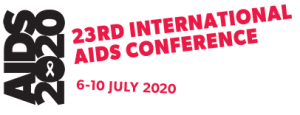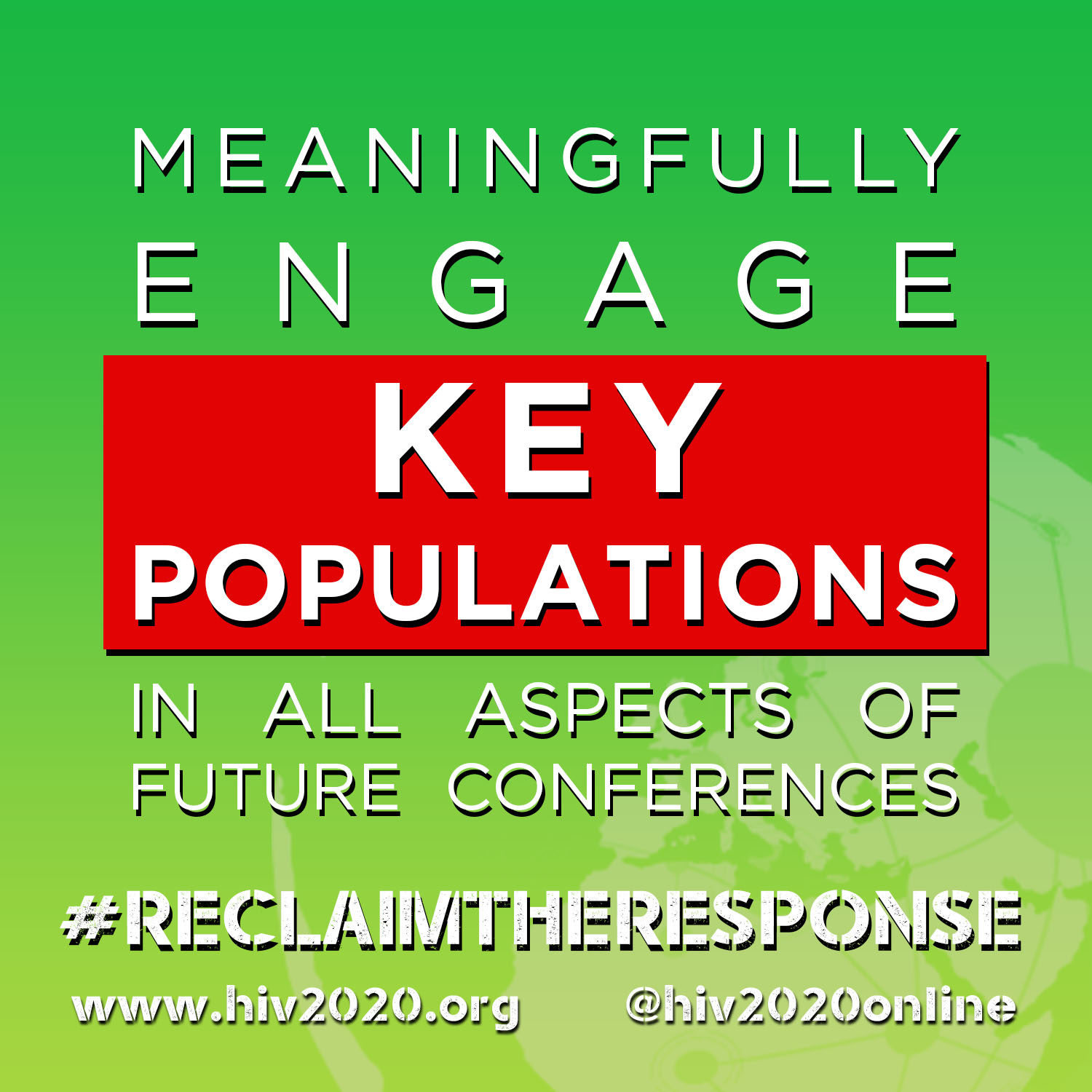AIDS 2020: Virtual opens with focus on impact of COVID-19 on global HIV response
New UNAIDS global HIV estimates, evidence of HIV service disruption and impact on LGBTI+ people due to COVID-19 presented at
23rd International AIDS Conference (AIDS 2020: Virtual)
6 July 2020 – The first-ever virtual edition of the world’s largest conference on HIV began today with a focus on the links between HIV and the COVID-19 pandemic and recognition of global debates around racism. Delegates from 175 countries are attending the conference, originally set to take place in Oakland and San Francisco, US.
“These are remarkable times – and defining times – for the global HIV movement and for the world,” International AIDS Society President and AIDS 2020: Virtual International Scientific Chair Anton Pozniak said. “Every conversation we have now sits at the confluence of the COVID-19 pandemic and a new global reckoning with systemic racism.”
The opening press conference featured UNAIDS Executive Director Winnie Byanyima, WHO Director-General Dr Tedros Adhanom Ghebreyesus and evidence from two studies examining the link between the HIV and COVID-19 pandemics.
Ms Byanyima presented findings from the UNAIDS 2020 Global AIDS Update, launched at the opening. The report, entitled Seizing the Moment: Tackling entrenched inequalities to end epidemics, includes a special chapter outlining the potential impacts that the COVID-19 pandemic could have in low- and middle-income countries on supplies of the generic antiretroviral medicines used to treat HIV.
“Even before the onset of COVID-19, the new UNAIDS Global Report shows that the world was not on track to reach its goal of ending AIDS as a public health threat by 2030,” Ms Byanyima said. “We cannot drop the ball on HIV. We must double down and increase our efforts to hold governments and policy makers to account. Epidemics run along the fault lines of inequalities and we can and must close the gaps.”
Dr Tedros shared findings of a new WHO survey showing significant disruptions in access to HIV treatment because of the COVID-19 pandemic.
“The findings of this survey are deeply concerning,” Dr Tedros said. “Countries and their development partners must do all they can to ensure that people who need HIV treatment continue to access it. We cannot let the COVID-19 pandemic undo the hard-won gains in the global response to this disease.”
Authors of two studies being released at AIDS 2020: Virtual also shared findings related to the intersection of COVID-19 and HIV.
Survey of LGBTI+ people shows increased socioeconomic vulnerability due to COVID-19
A survey of 13,562 people in 138 countries conducted from mid-April until mid-May showed that COVID-19 is having a devastating impact on the LGBTI+ community worldwide.
Nearly half the survey participants faced economic difficulty, with many unable to meet their basic needs, skipping meals or reducing meal sizes. Further, nearly half of those who were working expected to lose their employment in the wake of the pandemic, and 13% had already lost their jobs.
Of concern, 26% of participants living with HIV reported that they had experienced interrupted or restricted access to refills of antiretroviral treatment.
Erik Lamontagne, a senior economist at UNAIDS, reported that the crisis has pushed 1% of respondents to start engaging in sex work. Among this group, the pandemic has reduced their ability to negotiate safer sex practices, thus potentially increasing their risk for acquiring HIV. Respondents also reported reduced access to safe injection equipment and opioid substitution therapy.
Dr Lamontagne noted that these findings demonstrate some of the reasons that COVID-19 threatens to undo global progress toward HIV prevention and treatment goals. [Summary based on submitted abstract; updated data may be presented on site.]
Abstract: COVID-19 pandemic increases socioeconomic vulnerability of LGBTI+ communities and their susceptibility to HIV
Session: Track E late-breaker posters, available online
Report on disruptions in PrEP care provides new insights into the impact of COVID-19 on HIV prevention
Researchers from a community health centre in Boston that specializes in sexual health found that the COVID-19 pandemic was associated with major disruptions in PrEP care, especially among vulnerable subpopulations.
Despite high use of telehealth, the study found that PrEP initiations decreased by 72% from January to April, and refill lapses increased by 278%. These lapses in PrEP refills were associated with being younger than 27 years, non-white, Latinx or publicly insured.
Additionally, testing for HIV, gonorrhoea and chlamydia decreased by 85%, while gonorrhoea and chlamydia positivity rates increased slightly.
Douglas Krakower of Beth Israel Deaconess Medical Center called for further studies to understand whether changes in PrEP care reflect decreased sexual risk or barriers to optimal healthcare. [Summary based on submitted abstract; updated data may be presented on site.]
Abstract: Impact of COVID-19 on HIV preexposure prophylaxis care at a Boston community health center
Session: Track C late-breaker abstracts (Prime Channel-Live; Thursday, 9 July, 01:00 AM PDT)
“It is clear from this evidence that the challenges of HIV and COVID-19 are linked, and so is the global response,” Dr Pozniak said. “We don’t yet know the extent of increased risk that COVID-19 poses for people living with HIV, but we do know that social distancing efforts and government lockdowns have disrupted HIV prevention and treatment efforts – and put vital HIV research on hold.”
New report on COVID-19 and HIV
IAS is releasing shortly a new report entitled: COVID-19 and HIV: A Tale of Two Pandemics. Noting widespread service disruptions, the report looks at how COVID-19 is impacting the global HIV response and provides two sets of recommendations for policy makers, healthcare providers, researchers, scientists, healthcare workers, communities and funders.
The first set of recommendations addresses HIV service delivery in the context of COVID-19, including shortening the length of health care visits and extending medication refills. The second set of recommendations addresses lessons from the HIV pandemic that can inform the COVID-19 response – including addressing social justice issues in the health care system and proactively addressing stigma.
The report will be made available online at iasociety.org
###
Media Contacts:
Leila Darabi, [email protected], +1.929.214.2306

